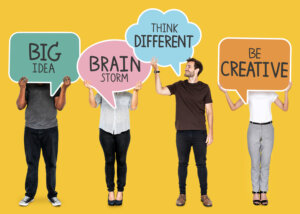I saw a post this week with the song lyric that many of you will remember, “There’s something happening here. What it is ain’t exactly clear”** The recent Occupy Wall Street movement raises complex ethical and spiritual questions regarding our global economic system. It’s not clear what needs to happen next to fix our global economic system. It is clear that many people don’t trust the system we have. I’m going to ruminate a little here, offering more questions than answers. It seems timely to examine the ramifications of our current economic system and consider spiritual principles to move forward.
Usury Fees- Time for another Examination
The prophet Muhammad forbade charging interest for trading (usury fees) because he saw the moral hazards of doing so. Though he came from the trading class himself, he understood the perils of creating uneven distributions of wealth, leaving many in poverty. He saw that usury fees could indenture many people who borrowed money just to pay for food or housing.
In Exodus (22:25) the prohibition was sweeping, no usury was allowed for lending to anyone who was poor “If you lend money to My people, to the poor among you, you are not to act as a creditor to him; you shall not charge him interest.” In Deuteronomy (23:19) there were similar condemnations for charging interest to one’s family or countrymen. Martin Luther also saw the corruption of the Catholic church over its use of money and lending practices and warned against such practices. We see from the Abrahamic traditions clear prohibitions against usury fees.
Since the early Mesopotamian, Graeco-Roman, and Arab trading cultures, societies have had to deal with the quandary of establishing just and profitable trading rules. In today’s world with instantaneous global access to trading, the prohibition on charging interest seems antiquated. Most of us rely on usury fees to support our future. Pension funds and retirement savings are based on investment growth that involves credit and lending and earning interest. Who is responsible for controlling and/or establishing reasonable lending practices (and from a spiritual perspective just practices) in today’s global economy?
Money and Justice- A spiritual perspective
As anyone who has studied finance knows, money begets money when interest is compounded over time. Those who start out with wealth earn far more than those who have little. We see the moral hazard of our current financial markets resulting in gross inequality of wealth. Is it up to the corporations and political leaders to fix the economic structures? What responsibilities do we as individuals have to trade, borrow, or invest in socially responsible ways?
Many threads tie together our economic system and our spiritual principles. They intersect at living wages, executive compensation, sustainable development, payday lending, hedge fund trading, campaign finance reform, corporations’ rights as citizens, Triple Bottom Line business practices. And on and on…..
The answers will come from moral and spiritual reflection as well as economic and political analysis. If we address these issues purely from an economic perspective, we miss the mark. There is something happening here. It is an awakening that the global economic system is somehow out of balance- whether it’s out of touch with our spiritual principles or simply not meeting the needs of too many people. I’d like to encourage the discourse to include an examination of the spiritual principles needed to guide us so we can make lasting changes in how money is earned, saved, invested and borrowed.
Please share your comments and reflections here or elsewhere as you feel so moved.
** Buffalo Springfield- 1967 – nice video of their performance in 1967.
Related links to Occupy Wall Street movement:
Occupy Wall Street Facebook page
Interview of recent college grad at Occupy Wall St. -“Occupy, but First Call Your Mother”
Interesting analysis by TeaParty member re: Occupy movement and grass roots organizing
Occupy Cities movement- Guardian article
*******************
For more resources, see our Library topic Spirituality in the Workplace.
——————
 Sections of this topic
Sections of this topic
















